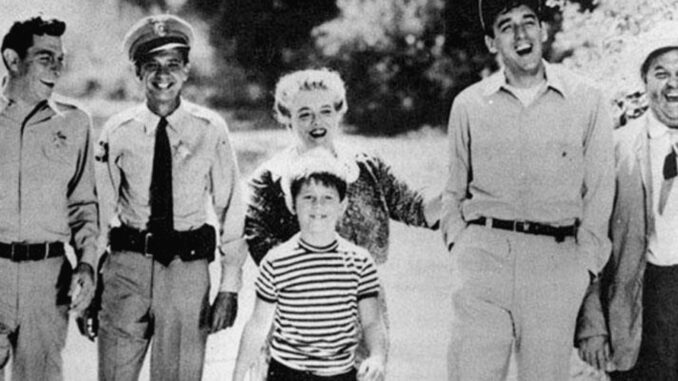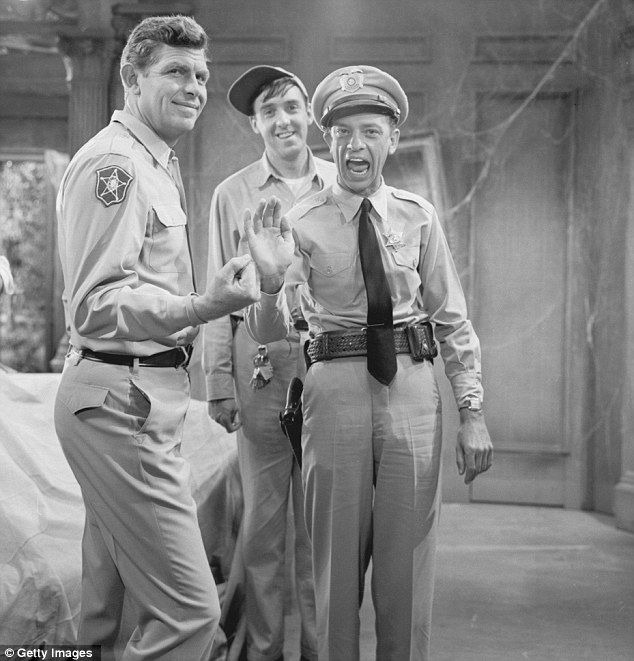
Introduction: Why Mayberry Stayed Pure When TV Was Getting Gritty
There’s something timeless about The Andy Griffith Show. While other shows leaned into controversy and scandal for ratings, Andy Griffith had a different idea: “I wanted to keep the characters clean.” That one simple sentence shaped one of the most beloved shows in television history. But what did he really mean by “clean”? And how did this decision shape the tone, legacy, and characters of Mayberry?
Let’s peel back the layers of this iconic series and discover why Andy Griffith’s decision to keep the characters morally upright turned into a revolutionary move that still resonates today.
The Golden Rule of Mayberry: Clean Characters Only
What Did “Clean” Mean to Andy Griffith?
For Andy, “clean” didn’t mean sanitized or dull. It meant the characters had integrity, honesty, and a strong moral compass. He wanted to portray a world where people weren’t perfect, but they tried to do the right thing — and that effort mattered.
Avoiding Cynicism in a Changing Era
In the 1960s, television was starting to shift. More urban settings, edgier themes, and social issues were becoming mainstream. But Griffith deliberately held the line, keeping Mayberry a place of kindness and decency.
The Impact of Clean Characters on Family Viewing
Why Families Felt Safe Watching Mayberry Together
Griffith understood the power of wholesome entertainment. Parents could trust the show. Grandparents could enjoy it. Kids could learn from it. The universal appeal came from characters who behaved decently without being dull.
Role Models in a Small Southern Town
From Sheriff Andy to Barney Fife, the characters were written with good intentions, even when they messed up. And that was the point: imperfection plus effort equals relatability.
Andy’s Philosophy vs. Today’s Edgy TV Trends
Why Griffith’s Approach Would Stand Out Today
Turn on the TV now, and you’ll find countless shows filled with anti-heroes, betrayal, and dark plots. Griffith’s approach wasn’t just different back then — it’s even rarer today. And ironically, that makes it feel fresh all over again.
TV That Doesn’t Need Shock Value to Be Great
The Andy Griffith Show never relied on cheap laughs, vulgarity, or explosive drama. It leaned into heartfelt storytelling, subtle humor, and real emotion — and that gave it longevity.

Behind the Scenes: Griffith’s Control Over the Show’s Tone
Andy Griffith Was More Than Just the Star
He was the creative force, the moral anchor, and often the one rewriting scenes to make sure they aligned with the show’s tone. If something didn’t feel right — too mean, too suggestive, too cynical — he’d cut it.
The Unseen Fight to Maintain Clean Values
Writers occasionally pitched ideas that leaned too far into silliness or sarcasm. Griffith would reject anything that didn’t feel true to the spirit of Mayberry. He wasn’t afraid to stand his ground.
Don Knotts, Frances Bavier & The Cast’s Alignment With Andy’s Vision
The Importance of Shared Values on Set
Griffith wasn’t alone in his mission. Don Knotts, Ron Howard, and even the famously private Frances Bavier (Aunt Bee) respected the tone he set. The cast understood that clean characters didn’t mean boring characters — it meant authentic ones.
The Chemistry That Made Mayberry Feel Real
Because everyone bought into the vision, the characters felt genuine. Their chemistry wasn’t just great acting — it was shared purpose.
Clean Humor: A Lost Art in Comedy
Making People Laugh Without Being Mean
Barney Fife’s bumbling antics. Gomer Pyle’s innocence. Opie’s curious questions. These moments were hilarious not because they were mean-spirited but because they were honest. That kind of clean humor is hard to find now — and that’s what made it special.
No Punching Down, No Cruelty
There were no cruel jokes at the expense of others. No stereotypes played for laughs. Just fun, character-driven comedy that aged like a fine wine.
Keeping Mayberry Free of Controversy Was Intentional
Why There Were No “Hot Topics” in Mayberry
You won’t find episodes diving into politics, race, or religion. Griffith wanted the show to feel timeless, not anchored to the tensions of the era. That decision has helped it stay relevant and watchable even decades later.
Creating a Bubble of Simplicity in a Complicated World
For Griffith, Mayberry was a safe space. Not because problems didn’t exist — but because they were tackled with kindness, patience, and decency.
Andy’s Legacy of Morality in Media
Paving the Way for Clean Sitcoms
Griffith’s clean character model inspired future family shows like “Full House,” “The Cosby Show,” and “7th Heaven”. They all walked in the footsteps of Mayberry — whether they admitted it or not.
Still Relevant in the Streaming Era
Ironically, with the rise of streaming, viewers are craving old-fashioned values again. Many have returned to Mayberry, not for nostalgia alone, but because it feels refreshing in contrast to today’s heavy dramas.
Andy’s Deep Connection to Small-Town America
Why Mayberry Mattered So Much to Griffith
Andy didn’t just create Mayberry — he lived it. Born in Mount Airy, North Carolina, his childhood inspired the fictional town. This wasn’t some fake creation. It was deeply personal.
The Importance of Community in Storytelling
Every episode of The Andy Griffith Show reminded us that community matters, neighbors help neighbors, and sometimes, slowing down is the real win.
Fans Still Grateful for Griffith’s Guiding Hand
Letters and Tributes Pour In Even Today
Fans have written to Andy (and now his estate) thanking him for giving them a show they could watch with grandparents, kids, and even alone without ever cringing or fast-forwarding.
Why Audiences Keep Coming Back to Mayberry
The answer is simple: clean characters still matter. And in a world where everyone seems to chase the next controversy, The Andy Griffith Show feels like a warm cup of coffee on a rainy day — comforting, familiar, and good for the soul.
Conclusion: Why Andy Griffith’s Words Still Resonate
Andy Griffith’s decision to keep his characters clean wasn’t just about avoiding controversy — it was a statement of values. He believed television could be better. Kinder. More meaningful.
And you know what? He was right.
Because even today, with hundreds of shows fighting for attention, The Andy Griffith Show remains one of the most beloved and rewatched series of all time. Not in spite of its “clean” characters — but because of them.
FAQs
1. What did Andy Griffith mean by “keeping the characters clean”?
He meant avoiding vulgarity, cruelty, and cynicism. He wanted the characters to act with integrity and keep the show family-friendly.
2. Was there pressure to make The Andy Griffith Show more edgy?
Yes. As other shows tackled controversial topics, Griffith resisted pressure to follow that trend, choosing timeless storytelling instead.
3. Did Andy Griffith control the show’s content?
Absolutely. He was heavily involved in scripts and often edited or rejected anything that didn’t match the tone of the show.
4. How did this philosophy affect the show’s success?
It helped make the show a hit with multiple generations. Its wholesomeness became part of its charm and longevity.
5. Are there any modern shows influenced by The Andy Griffith Show?
Yes. Family-friendly shows like Full House, The Middle, and Blue Bloods draw from Griffith’s blueprint of clean, value-driven characters.